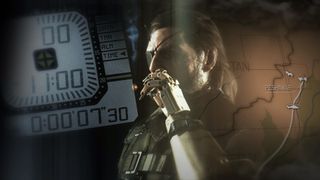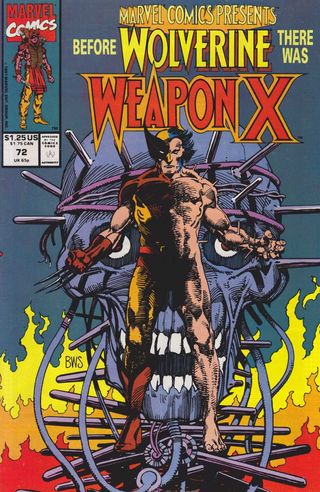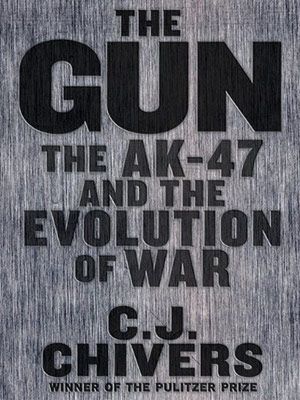If you like Metal Gear Solid 5, you’ll also like…

Need more Metal Gear? Check out the rest of our coverage or read our review.
The Metal Gear Solid series has always been as much about mining the history of movies as actual world events. There are so many allusions and references embedded in the long-running stealth action series, that the possibilities in terms of recommending further reading and watching are almost endless. The recent release of MGS 5: The Phantom Pain represents the end of Metal Gear under its creator Hideo Kojima’s stewardship, and the game bows out with an appropriately rich fusion of twisted history and ‘80s-influenced action movie madness.
Kojima has often gone on record listing the cinematic influences that have been important to him in as he guided MGS through its various incarnations, including classics like The Deer Hunter, Full Metal Jacket, and Heat. It’s clear that the series’ mastermind has been motivated by big films that take on sweeping and transformative moments in history, accompanied by a deep uneasiness with the direction the modern world is heading in.
With all that in mind, in this edition of ‘If you like...’ I’ve selected films and books that echo Metal Gear Solid’s fundamental foundations: visual splendor amidst startling violence, the intersection of technology and the body, and the deadly legacy of the Cold War...
Escape from New York, directed by John Carpenter
John Carpenter’s 1981 vision of the Big Apple as a dystopic, maximum security prison shares all the ingredients of a Metal Gear Solid sneaking mission. On the eve of a crucial summit on nuclear weapons, the President of the United States is missing and only one man can save him in time—Snake Plissken. Played with suitable gruffness by Kurt Russell, it’s up to the ex-soldier turned heistman to sneak into New York and nab the President plus a crucial audiotape he’s carrying.
Beyond providing the obvious inspiration for Snake himself, Carpenter’s film also shares a lot in common with another classic fictional world that had a deep influence on Kojima: James Bond. Escape from New York isn’t just about a one-eyed, scowling tough guy, it’s also about gadgets, ticking time-bomb scenarios, and strange sidekicks picked up along the way. And like Bond, we see that no matter how perilous the problem, it’s really all about Snake in the end.
Marvel Comics Presents: Weapon X, written and illustrated by Barry Windsor-Smith

Conceived by Barry Windsor-Smith as a psychologically rich and disturbing origin story for Marvel icon Wolverine, this 1991 arc from Marvel Comics Presents fits neatly into the Metal Gear Solid worldview. It’s set in a secret laboratory where scientists are working to create the perfect killing machine out of Logan aka Wolverine. During this process we get insight into the development of not only his fearsome adamantium claws, but also his dark and troubled personality.
PC Gamer Newsletter
Sign up to get the best content of the week, and great gaming deals, as picked by the editors.
In a way that reminds me of The Phantom Pain’s vivid and violent introduction, Windsor-Smith’s Weapon X presents Wolverine as damaged goods. As with Big Boss, Logan’s biggest challenge isn’t surviving the medical experimentation so much as rediscovering his humanity and identity. No matter the technology that helped transform him, the biggest question seems to be—is he a man or an animal?
Black Hawk Down, directed by Ridley Scott
A director long known for his arresting and powerful visual style, Ridley Scott’s 2001 action/drama film dealing with the 1993 Battle of Mogadishu has long been pointed to as an obvious touchstone for events in the Metal Gear Solid universe (especially those from The Phantom Pain’s predecessor, MGS 4: Guns of the Patriots). Based on an original book of the same name by Mark Bowden, Scott’s film traces themes that also surface prominently in The Phantom Pain—loyalty, camaraderie among soldiers, and the blurred lines of life lived in a war zone.
Beyond the thematic similarities, Black Hawk Down is simply a brilliant war film packed with great performances by talented actors. Eric Bana’s turn as a cynical but clear-eyed Delta Force operative is particularly moving and acts as a kind of mirror to Josh Hartnett’s more idealistic Army Ranger. While the film is a fairly one-sided fantasy about the costs of war, it meshes the personal with the political in a way that very few recent war films have been able to do so effectively.
The Gun, by C.J. Chivers

Metal Gear Solid has always ramped up the drama of weapons technology by returning again and again to giant death machines that threaten world peace. In C.J. Chivers’s 2009 book, The Gun, we get a social history of the Cold War’s actual deadliest weapon—the AK-47. A longtime NY Times war correspondent and former Marine, Chivers walks his readers through the origins of automatic weapons, their proliferation throughout the world, and their impact on warfare to the present day. And he does all this through the lens of perhaps the most famous gun ever developed, the Kalashnikov.
Exhaustively researched and highly readable, Chivers’s book resists tidy conclusions. It works to explain the significance of a weapons technology that has impacted nearly every dimension of contemporary world conflict, from gang warfare to the battlefields of Afghanistan.
Patrick currently works as web editor for Hinterland Studios, which is making The Long Dark. For more installments of ‘If you like...’, check out his recommendations for Dead Space, The Witcher, Dishonored, Mass Effect,Skyrim, Fallout 3, Deus Ex, Company of Heroes, STALKER and Her Story fans.
Most Popular

